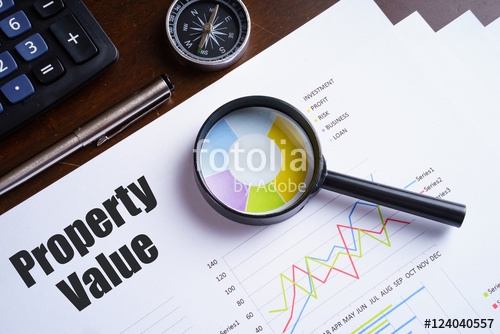How To Find An Appraiser
Many people’s experiences with real estate appraisals are limited to mortgage applications. The appraiser is usually selected, and the report ordered through the lender. The task of selecting an appraiser for purposes such as estate planning and settlement, divorce, tax appeal, etc., is solely on the consumer and can become overwhelming. This blog post offers a guide to help you through the process.

There are several ways to find a real estate appraiser in the Philadelphia, PA area. You can ask for referrals from real estate agents, attorneys, and other professionals that have worked with appraisers in the past and can provide recommendations based on their experience.
Online search engines, such as Google, can quickly provide you with a list of home appraisers in your area. Search results also offer information on specific services provided by individual appraisers, contact information, and reviews by past customers.

There are online directories that list licensed appraisers in your area, such as the Appraisal Subcommittee National Registry. You can contact Pennsylvania’s appraisal board to obtain a list of state licensed appraisers. The PA appraisal board will also provide information on the appraiser’s license status and any disciplinary actions taken against them.
When selecting an appraiser, it’s important to choose someone who is licensed and qualified to perform the type of appraisal you need. Many appraisers’ professional experiences are limited to mortgage appraisals. They may not be familiar with reporting requirement for other appraisal purposes. Be sure to ask for references and review their qualifications and credentials before hiring an appraiser.

Once an appraiser has been selected, an initial consultation takes place. The consultation is typically the first contact between you and the appraiser. The purpose of the consultation is to discuss the details of the appraisal assignment, including the scope of work, the type of property being appraised, and the purpose of the appraisal.
During the initial consultation, the appraiser will gather information about the property such as its location, size, age, and condition. The appraiser will also discuss the purpose of the appraisal such, estate planning, or tax purposes. Any unique features or characteristics of the property that may affect its value will be also discussed. The appraiser will explain the appraisal process and the methods used to estimate the property’s value. An estimate of the cost and timeline for the appraisal will be given during the consultation.
The initial consultation is an opportunity for the you and the appraiser to establish clear communication and ensure that you are on the same page regarding the scope of work and the expectations for the appraisal. It is important for you to provide the appraiser with accurate and complete information about the property and the purpose of the appraisal to ensure that the final report is accurate and reliable.

Once an informal agreement has taken place, all details are formalized in a letter of engagement. This letter is also referred to as an appraisal contract, or appraisal agreement. A letter of engagement outlines the scope of work, the appraiser’s responsibilities, and the terms and conditions of the appraisal engagement. There are several reasons why you need a letter of engagement for a real estate appraisal.
The letter of engagement defines the scope of work for the appraisal, including the purpose of the appraisal, the type of property to be appraised, and the date of the appraisal. This helps ensure that the appraiser understands your specific needs and requirements.
The letter of engagement also sets out the appraiser’s responsibilities and obligations, such as the requirement to comply with professional standards, maintain confidentiality, and provide a well-supported appraisal report.

The letter of engagement can also help ensure the appraiser’s objectivity and independence by setting out the terms of payment and clarifying that the appraiser is not to be influenced by any parties with an interest in the property.
A letter of engagement can provide legal protection for both you and the appraiser by establishing the terms and conditions of the appraisal engagement in writing.

A letter of engagement is a critical component of any real estate appraisal as it helps to ensure that the appraisal is conducted in an objective and professional manner, and that the scope of work and responsibilities of the appraiser are clearly defined.
Overall, thorough vetting of a real estate appraiser is an important step in the process. The appraisal plays a critical role in making an informed decision under variety of circumstances.

